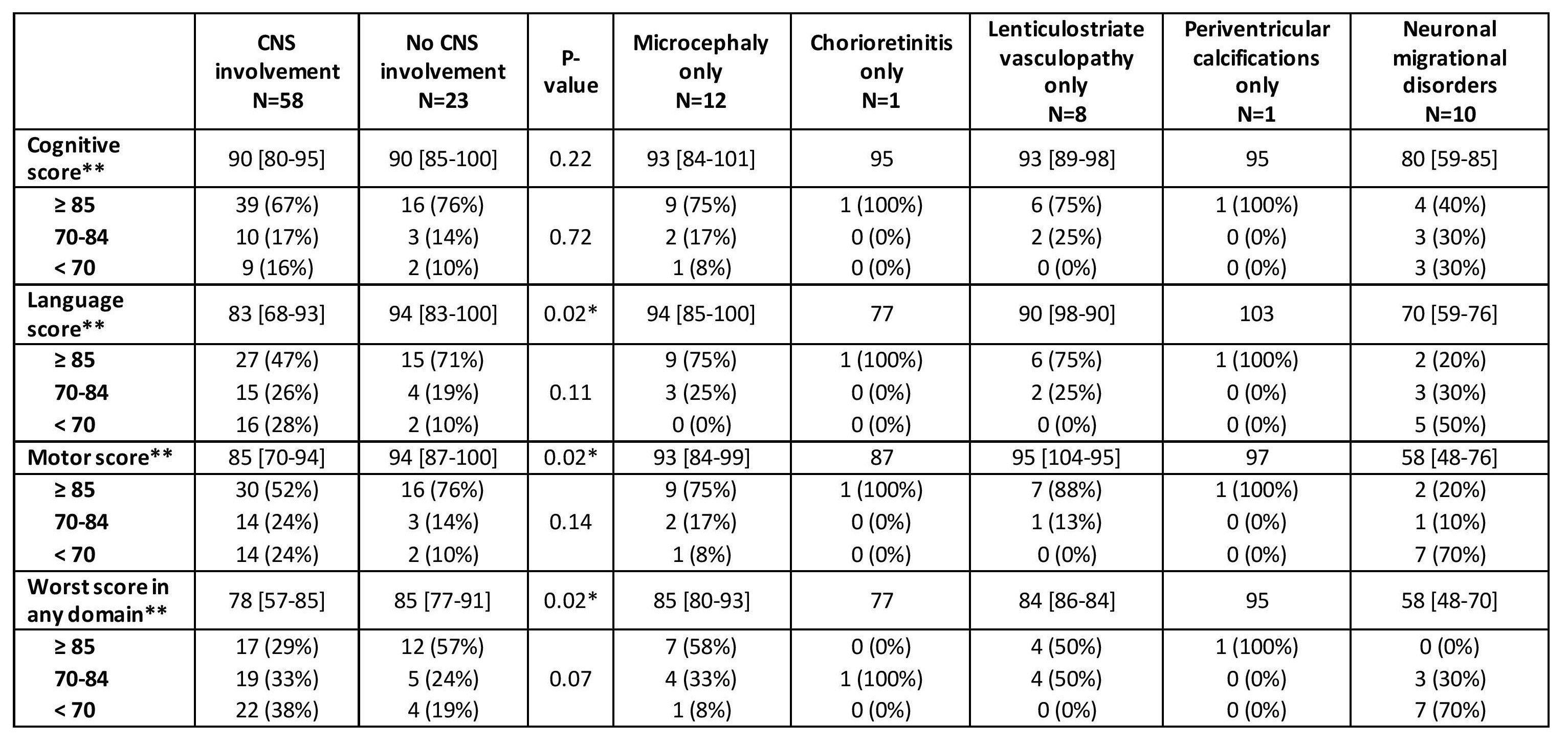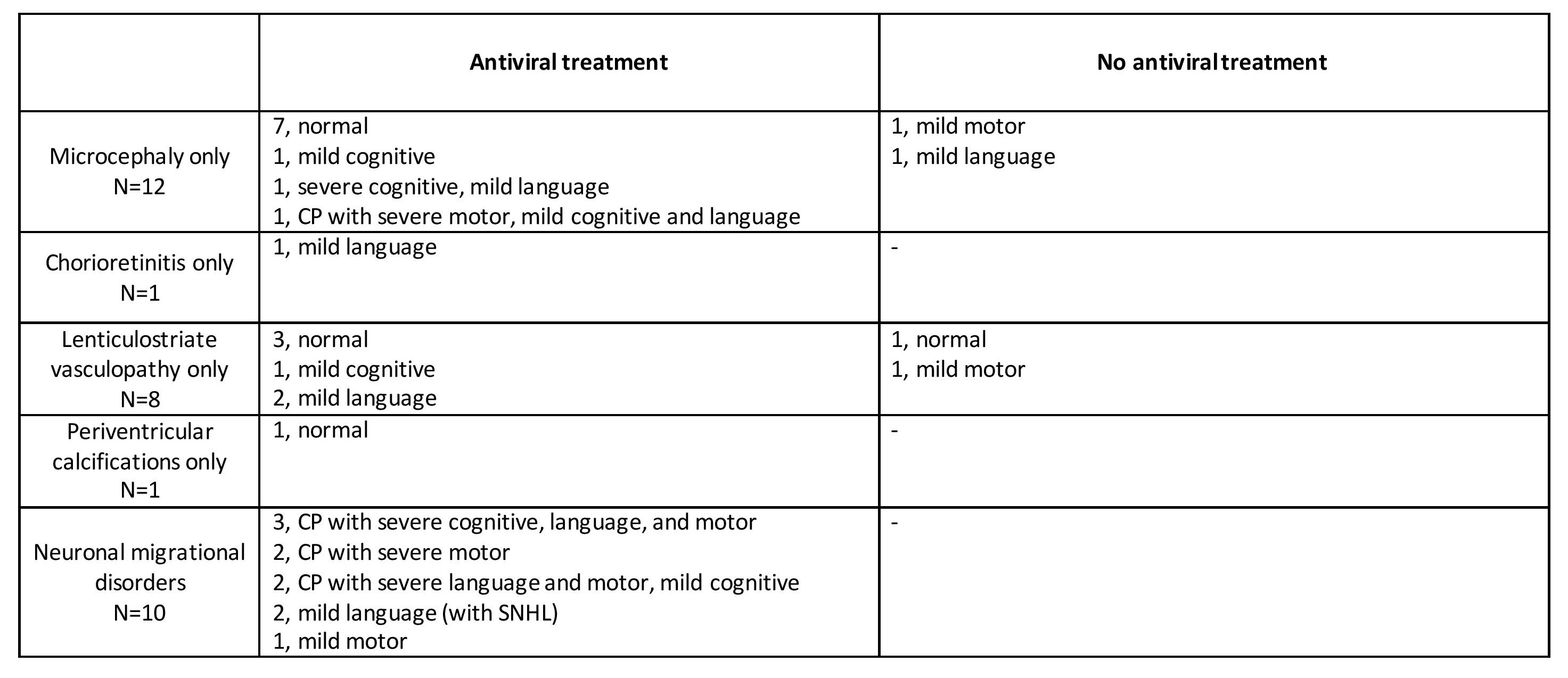Neonatal Infectious Diseases/Immunology
Neonatal Infectious Diseases/Immunology 4
423 - Neurodevelopmental Outcomes in Congenital Cytomegalovirus (cCMV) Infection with Central Nervous System (CNS) Involvement
Publication Number: 423.335

Margaret Jia (she/her/hers)
Medical Student, MS3
Ohio State University College of Medicine
Columbus, Ohio, United States
Presenting Author(s)
Background:
cCMV infection is a major cause of neurocognitive impairment. In addition to sensorineural hearing loss (SNHL), CNS involvement includes microcephaly (< 10%), chorioretinitis, and abnormal neuroimaging (lenticulostriate vasculopathy [LSV], periventricular calcification, neuronal migrational disorder). The contribution of specific CNS manifestations to neurodevelopmental (ND) outcomes is not fully known.
Objective:
To characterize cCMV-related CNS abnormalities and their association with ND outcomes
Design/Methods:
From 2013-present, cCMV infants at Nationwide Children’s Hospital underwent a complete evaluation at diagnosis with follow-up ND assessments. Pertinent clinical and follow-up data were obtained. ND assessments used the Bayley Scales of Infant and Toddler Development (BSID) III/IV (cognitive, language, motor domains; normal, ≥85; mild impairment, 70-84; severe, < 70). Cerebral palsy (CP) was assessed.
Results:
Of 81 infants with cCMV infection who had follow-up ND assessments, 58 (72%; 59% male; 60% white) had CNS involvement. Of the 58 infants, mean (±SD) gestational age and birth weight were 36±3 wk and 2315±781 g, respectively (Table 1). 12 (21%) of the 58 infants only had microcephaly, 1 had chorioretinitis, and 45 (78%) had abnormal neuroimaging. 25 (44%) infants only had cranial ultrasonography performed, 1 had CT scan, and 31 (54%) had brain MRI. When tested at a mean age of 22 (±11) months, 71% had ND impairment (22, severe; 19, mild; Table 2). Of the 12 infants with only microcephaly, 7 (58%) received antiviral therapy and had normal BSID scores. 5 (42%) infants had BSID abnormalities: 3 treated (1, mild cognitive; 1, mild language, severe cognitive delay; 1, CP with severe motor delay, mild cognitive and language) and 2 untreated (1, mild motor; 1, mild language). 8 (14%) infants only had LSV; 3 (50%) of 6 who received antiviral treatment had normal ND outcomes while 3 had mild delays in cognition (n=1) and language (n=2). Of the 2 untreated infants, 1 developed mild motor delay. 1 other treated infant only had periventricular calcifications and had normal outcomes. 10 infants had migrational disorders and despite treatment, 7 (70%) developed CP with severe delay. The 3 other infants had mild motor delay (n=1) and mild language delay with SNHL (n=2).
Conclusion(s):
While cCMV infection with CNS manifestations is associated with substantial ND impairment especially in those with migrational disorders (71%), the majority of children were normal (29%) or had mild impairment (33%). Current classification and prediction of ND outcomes in the era of antiviral therapy should be re-assessed..jpg)


